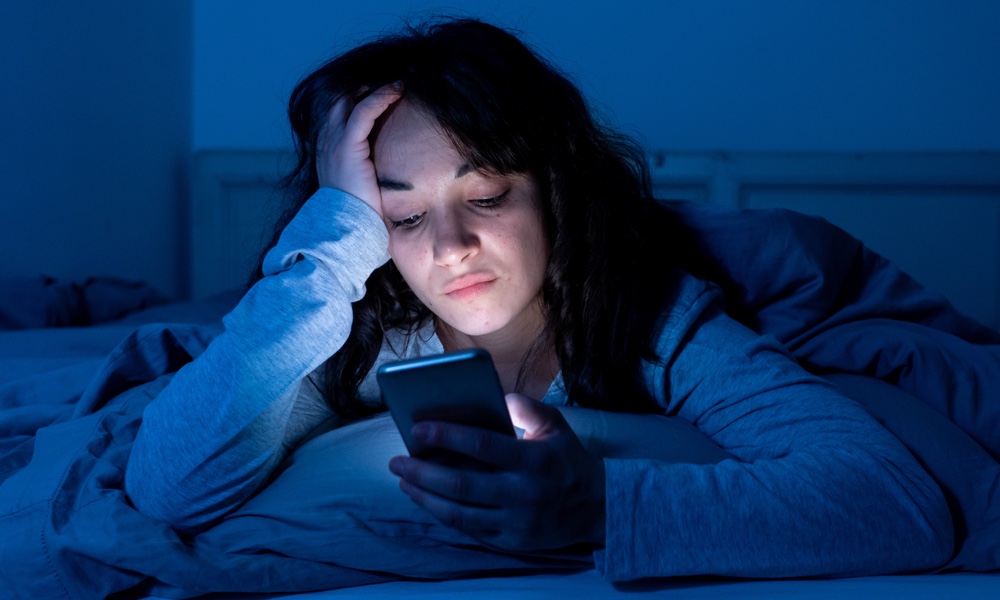Your iPhone’s Night Shift Mode Might Not Help You Sleep After All
 Credit: Shutterstock
Credit: Shutterstock
Toggle Dark Mode
Your devices are probably affecting your sleep. And while features like Night Shift are said to be a solution, a new study appears to cast some doubt on whether they’re actually helping.
Most people are aware that smart devices like iPhones, iPads or Macs emit blue light. And the prevailing thought is that this blue light can have detrimental effects on a user’s sleep cycle and circadian rhythm.
But new research conducted by Dr. Tim Brown and recently published in Current Biology (via The Guardian) seems to suggest that display brightness levels — and not light color — have a much bigger impact on a user’s circadian rhythm.
The current thought is that blue light can disrupt a user’s circadian cycle by suppressing melatonin levels, which are critical for a healthy sleep cycle. Because of that, many smart device manufacturers have taken to implementing features like Apple’s Night Shift, which changes a display’s color temperature to warmer tones.
As Dr. Brown points out, his research suggests that brightness levels are much more stimulating to a user’s sleep cycle than blue light. He added that, at some brightness levels, blue light may even be more relaxing than yellow hues because it can emulate twilight-like colors.
It’s worth noting that the study was carried out on mice, so it isn’t clear if the results will translate to human subjects the same way.
Night Shift is certainly easier on the eyes late at night, as most users can attest to. But if Dr. Brown’s study turns out to be correct, using Night Shift at full brightness might be pointless.
So What Should I Do?
In any case, it’s recommended that you avoid using your smart devices before you head off to sleep. Some doctors recommend cutting off screen time around one hour before bed.
At night, it may also be worth enabling Dark Mode since darker UI elements cast less light than bright ones.
And even if Dr. Brown’s research leads to new findings in the sleep science spheres, we’d still recommend throwing on Night Shift and turning down your phone’s brightness.
You may also want to invest in a pair of blue light-blocking glasses like these ones and make sure your device’s display is at a reasonable brightness.
Note that we may earn a commission from products purchased using our links. Thanks for reading!






